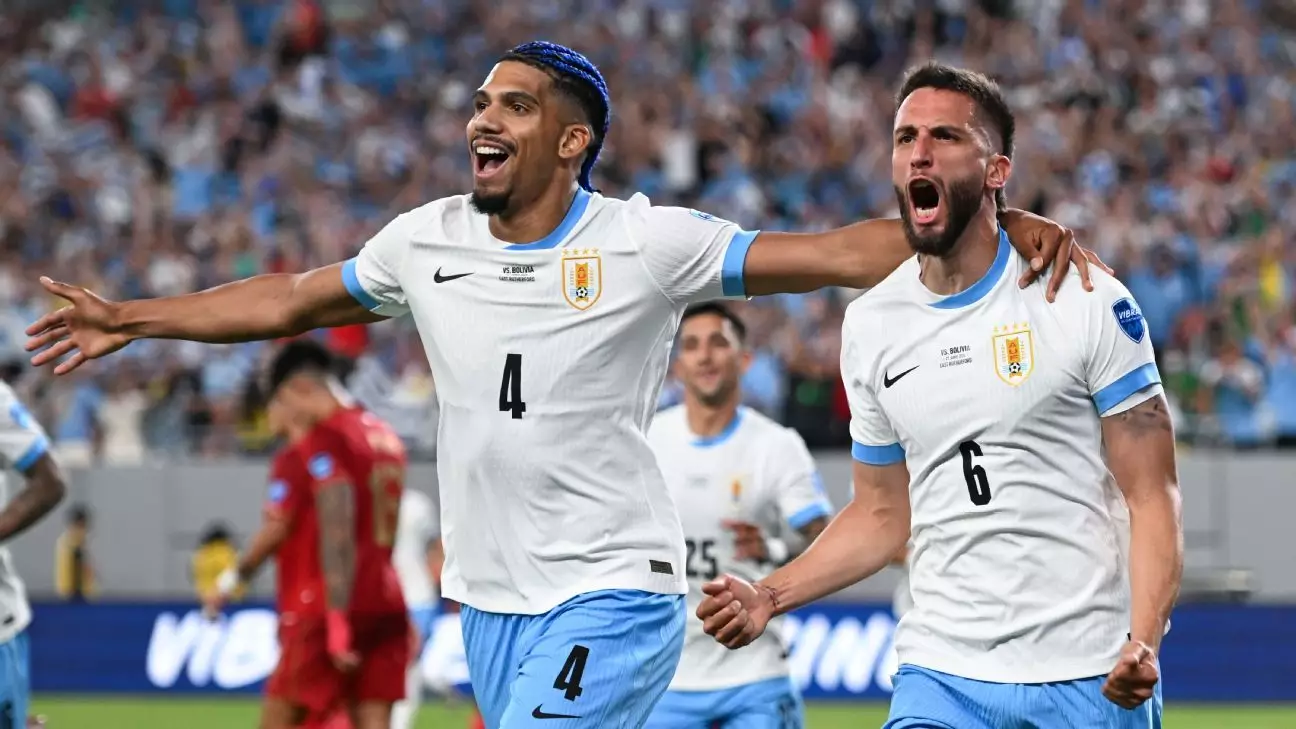When the U.S. men’s national team faces Uruguay, the apparent discrepancy in their respective populations and economic resources is striking. With a population of 340 million, the United States dwarfs Uruguay’s 3.5 million. However, Uruguay’s soccer team boasts a rich history and impressive achievements, including two World Cup titles and 15 Copa América titles. What sets Uruguay apart from its competitors is its unyielding spirit known as the Garra Charrúa.
Former Uruguay international Diego Forlan described Garra Charrúa as a warrior-like mentality passed down from generation to generation. This ethos, rooted in the indigenous Charrúa people’s resistance against conquistadors, imbues the team with a relentless drive to excel. Despite the challenges of limited resources and tough competition, Uruguayan players embody the Garra Charrúa, always striving to give their best on the field.
Soccer is deeply ingrained in Uruguayan culture, with fields scattered throughout neighborhoods and a passion for the sport evident from a young age. Players like Nicolás Lodeiro reminisce about makeshift games played with everyday items, highlighting the pervasive love for soccer in the country. The intense environment of Uruguayan youth soccer, where children face high expectations from early ages, contributes to the development of competitive and resilient players.
Former U.S. international Tab Ramos emphasizes the ingrained belief in Uruguay’s soccer supremacy, instilled in generations of players. This collective mindset fuels the team’s unwavering determination to win, regardless of the opponent. While the intense competition pushes players to excel, it is the intrinsic desire to succeed that ultimately propels Uruguayan soccer to great heights.
Uruguay’s soccer journey has seen periods of both triumph and struggle. Despite its storied history, the team faced setbacks, such as repeated failures to qualify for the World Cup. The realization that Garra Charrúa alone might not suffice prompted a shift in approach under coach Oscar Tabarez. Tabarez’s strategic reforms revitalized Uruguayan soccer, paving the way for a new generation of talented players like Edinson Cavani and Luis Suárez.
The blend of tradition and innovation under Tabarez’s guidance ushered in a successful era for Uruguayan soccer, marked by international acclaim. However, the team’s recent transition to coach Marcelo Bielsa signals a new chapter, characterized by an aggressive attacking style and tactical adaptability. Bielsa’s emphasis on proactive football challenges players to elevate their performance and embrace a more dynamic approach on the field.
As Uruguay prepares to face the U.S. team, the focus remains on translating its tactical evolution into on-field success. Bielsa’s strategic prowess and demanding style present a formidable challenge for opponents, requiring mental fortitude and physical intensity. The U.S. midfielder Tyler Adams, who experienced Bielsa’s coaching at Leeds United, acknowledges the high stakes and intensity expected in the upcoming game.
While Uruguay’s enduring spirit of Garra Charrúa continues to drive its success, the team’s evolution under Bielsa underscores a commitment to dynamic and assertive football. As Uruguay and the U.S. clash on the field, it is not only a test of skill but also a clash of ideologies. The U.S. must match Uruguay’s intensity and resilience to stand a chance against a team steeped in history and driven by an unyielding spirit.
